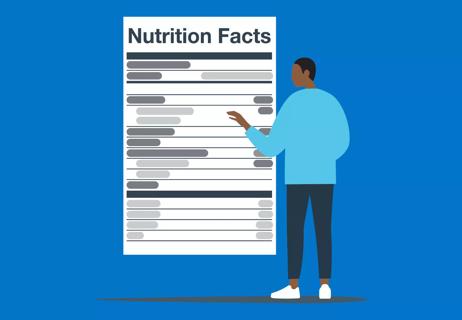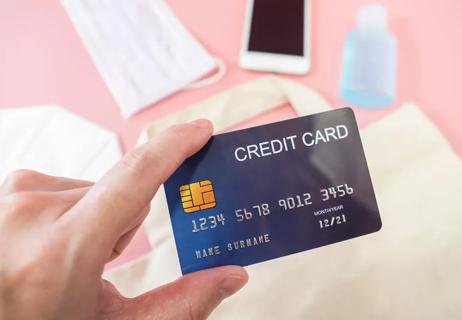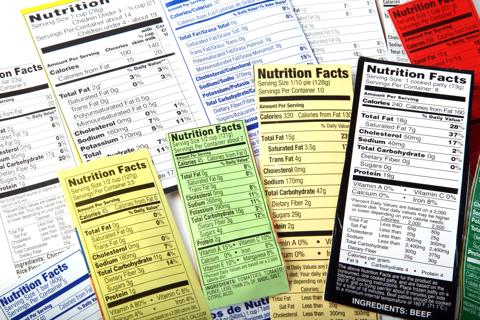An occasional shopping spree can boost your mood by distracting you from stressors and pumping your brain full of ‘happy hormones’

Just about everyone can relate to the sheer joy that buying a little something for yourself can bring. And most of us have turned to the mall at least once in an effort to raise our spirits. Hence the knowing smiles from your friends when you joke that you need a little “retail therapy.”
Advertisement
Cleveland Clinic is a non-profit academic medical center. Advertising on our site helps support our mission. We do not endorse non-Cleveland Clinic products or services. Policy
But does shopping really help us feel better? Psychologist Susan Albers, PsyD, walks us through the logic, benefits and risks of using shopping as a coping mechanism.
The term “retail therapy” describes the act of shopping with the goal of improving your mood or avoiding difficult emotions. Retail therapy usually involves buying things you want, not things you need. Some people spend lots of money on jewelry, shoes or electronics. But little purchases — like a candy bar or a magazine from the grocery store checkout line — can scratch the same itch.
Sure, we say that browsing the aisles gives us a thrill. But is that true at a neurological level?
Dr. Albers says it is, adding, “Research suggests there’s significant psychological and therapeutic value to shopping — when done in moderation, of course.”
So, while it’s meant in jest, the term “retail therapy” is at least partially accurate.
“There are lots of reasons why adding items to an online shopping cart or visiting your favorite boutique can provide a psychological and emotional boost,” Dr. Albers says.
Retail therapy is effective because the act of purchasing something for yourself does some or all of the following:
You’ve probably heard of “happy hormones” before. Dopamine, serotonin and endorphins are just a few of the chemicals our brain releases when we engage in behaviors like shopping.
Advertisement
This response is the reward center of our brain’s way of urging us to keep doing things it sees as necessary for our survival — and the survival of our species. The same chemical reaction happens when you eat a meal, kiss someone special or go dancing with friends.
“Some people think these hormones only get released when you actually purchase an item, but it begins well before that,” Dr. Albers explains. “It can start before you even leave the house because you’re delighting in all the possibilities. Your happy hormones surge through the whole journey.”
Research shows that making shopping decisions can help reinforce a sense of personal control over our environment. It can also ease feelings of sadness.
A 2014 study from the Journal of Consumer Psychology found that sadness is generally associated with a sense that we lack the power to change our situation. But when we shop, we’re making choices and determining outcomes for ourselves.
Regardless of whether the purchase is a good idea, selecting a product can restore a feeling of personal control and autonomy. The result: A reduction in our feelings of sadness.
“When you’re feeling as if things aren’t going your way, getting exactly what you want can feel like a positive personal achievement,” Dr. Albers says.
It’s something we’ve all done from time to time. We’ve imagined the flawless complexion we’d have if only we owned all those fancy skin care products. Or pictured the thinly veiled jealousy written on our friends’ faces as we drive up in a flashy new car.
Turns out, those fantasies are part of the reason retail therapy can improve your mood.
“Shopping gets us to visualize positive outcomes,” Dr. Albers says. “And visualization is a powerful tool. It’s why so many people enjoy making vision boards and elite athletes work closely with sports psychologists. Visualization creates positive anticipation and reduces anxiety.”
She’s quick to add that those benefits translate to ecommerce, too.
“Those perfectly merchandized, curated collections of products can get our imagination going as we project ourselves in satisfying environments,” she notes.
Going to a crowded store can be an assault on the senses. And that assault can distract us from the stressors of daily life.
“The smell of food, the bright lights, the background music and colorful displays — they all combine to create an imaginative, sensory experience,” Dr. Albers states. “It’s so all-consuming, it can remove us from our own reality for a little while.”
Advertisement
Occasional distractions can be a good thing. Avoidance, not so much. And using shopping to run away from your troubles is one of the key signs that shopping’s becoming a problem for you. More on that in a bit.
The science is pretty definitive when it comes to the relationships between exercise and your mood. When we’re up and moving, we’re producing serotonin, endorphins and dopamine. While shopping malls may not be as popular as they used to be, an in-person shopping spree can still be quite a workout.
“Walking from store to store, trying on clothes, pushing a cart and lifting heavy items adds up,” Dr. Albers notes. “Even if you don’t buy anything, you may find you feel happier and more relaxed after a shopping trip.”
A 2023 survey by consulting firm Deloitte found that shoppers — both in the U.S. and around the globe — are most likely to splurge on food or drinks. And that spending often happens in social settings like cocktail bars, coffee shops and restaurants.
In other words, you aren’t just spending money: You’re spending time. And being close with other people is another great way to release happy hormones and boost your mood.
Shopping culture changes over time. For example, we spend less time leafing through the pages of catalogs, haggling and writing checks than we used to. And the rise of online retailers, social media influencers and payment apps have made it easier than ever to buy something on impulse.
Advertisement
You may be curious: Are our brains adapting along with our consumption habits?
According to Dr. Albers, browsing, scrolling and window shopping can positively impact your mood. Anticipating a reward triggers a dopamine surge, so you don’t have to actually spend money to feel like you’ve treated yourself.
Sure, spending money might feel even better. But as Dr. Albers puts it, “You’ve gone through an exciting mental journey already. That’s why it’s common to fill up an online cart and abandon it before buying anything.”
Online shopping doesn’t necessarily stimulate all five senses, but those bright, colorful websites and videos can have a similar effect. And waiting for your package to arrive can also activate the reward center of your brain.
“Think about retail subscriptions, where you may not know exactly what’s being delivered,” Dr. Albers says. “The unpredictability increases your anticipation and excitement.”
Of course, you want to ensure you’re not taking shopping to an extreme. For some, buying can become a problem behavior. For others, shopping can escalate into a full-blown addiction.
Shopping shifts from being therapeutic to a problematic compulsive behavior when it becomes a go-to way of dealing with anxiety, stress or loss. Dr. Albers says it’s also an issue if you feel unable to stop making purchases.
Advertisement
It’s OK to indulge in behaviors that create excitement and bring us happiness. But mindfulness and moderation are key.
“If you’re concerned about developing a shopping addiction, try substituting your spending habit with a positive behavior, goal or hobby,” she suggests. “Working out, making art and developing a mindfulness practice are examples of positive coping mechanisms that can help you feel better without emptying your wallet.”
If you aren’t interested in giving up retail therapy completely, there’s another route to consider. It can also be psychologically therapeutic if you save up for that reward rather than buying something immediately with a credit card.
“Applying the theory of anticipation and saving up for your reward gives you something to look forward to, which creates excitement and a release of dopamine over time,” Dr. Albers says “You’ll be surprised at how happy you can feel working toward those positive results.”

Sign up for our Health Essentials emails for expert guidance on nutrition, fitness, sleep, skin care and more.
Learn more about our editorial process.
Advertisement

Signs you’re a compulsive spender include lying about purchases, buying things you don’t use and treating shopping like a hobby

Information on serving size, calories and nutrients can help you make healthy choices

From planning ahead to resisting bargains, these tips could also save you money

All it takes is a little planning

Avoid bringing bacteria home

4 ways to identify foods that are (actually) good for you

Even small moments of time outdoors can help reduce stress, boost mood and restore a sense of calm

Exploring your hidden side can lead to better understanding of what makes you tick

Even small moments of time outdoors can help reduce stress, boost mood and restore a sense of calm

A correct prescription helps your eyes see clearly — but as natural changes occur, you may need stronger or different eyeglasses

Both are medical emergencies, but they are very distinct events with different causes